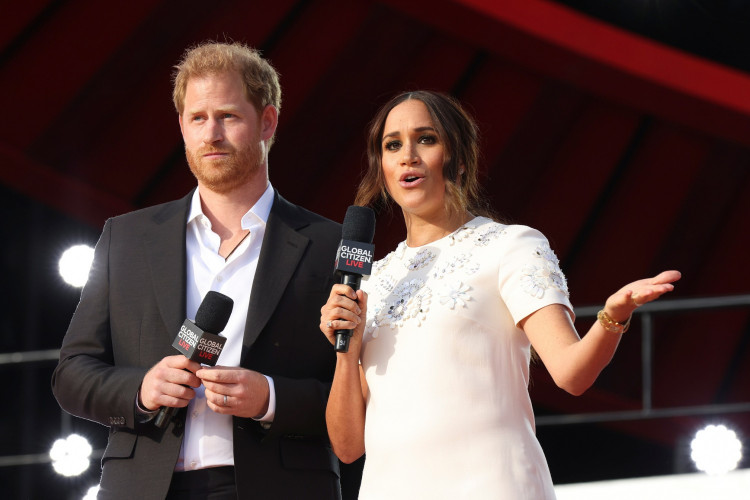In a recent development within the British Royal Family, the Duke of Westminster, Hugh Grosvenor, has reportedly opted not to invite Prince Harry and Meghan Markle to his upcoming wedding. This decision, as discussed by royal reporter Kinsey Schofield, seems to reflect the ongoing complexities surrounding the couple's relationship with the royal family and their public image.
Grosvenor, a close figure within the royal circles and a godfather to Prince Harry and Meghan's son, Archie, reportedly made this decision against a backdrop of ongoing rifts and controversies involving the Sussexes.
According to Schofield, speaking on GB News, the presence of Prince Harry and Meghan tends to be accompanied by drama, affecting the dynamics of events they attend. "Everywhere Harry and Meghan go, drama follows," Schofield stated, suggesting that their involvement in events often becomes the focal point, overshadowing the intended purpose.
The decision not to invite the Sussexes to the wedding is seen as a practical move to ensure the day remains centered on the celebration rather than being overshadowed by any potential drama. Schofield argues that this is a "common-sense decision," implying that the couple's presence could detract from the wedding's sanctity and joy.
This view is further supported by the release of the book "Endgame" by Omid Scobie, which has stirred up additional controversy and discussion about the couple's role within the Royal Family. Schofield alleges that Harry and Meghan's fingerprints are "all over" Scobie's earlier work, "Finding Freedom," although the couple has denied involvement in "Endgame."
The situation underscores the ongoing challenges Harry and Meghan face in navigating their public and private roles, especially in relation to the broader Royal Family dynamics. Their actions and the media's portrayal of them continue to spark debates and opinions, affecting their relationships within the family and their public image.
This latest development, with Grosvenor's wedding as the backdrop, highlights the complexities and nuances of the Sussexes' position within the royal framework and public life. The choice to exclude them from the guest list is seen not just as a personal decision but as a reflection of the broader narrative surrounding the couple in the aftermath of their departure from senior royal duties.





